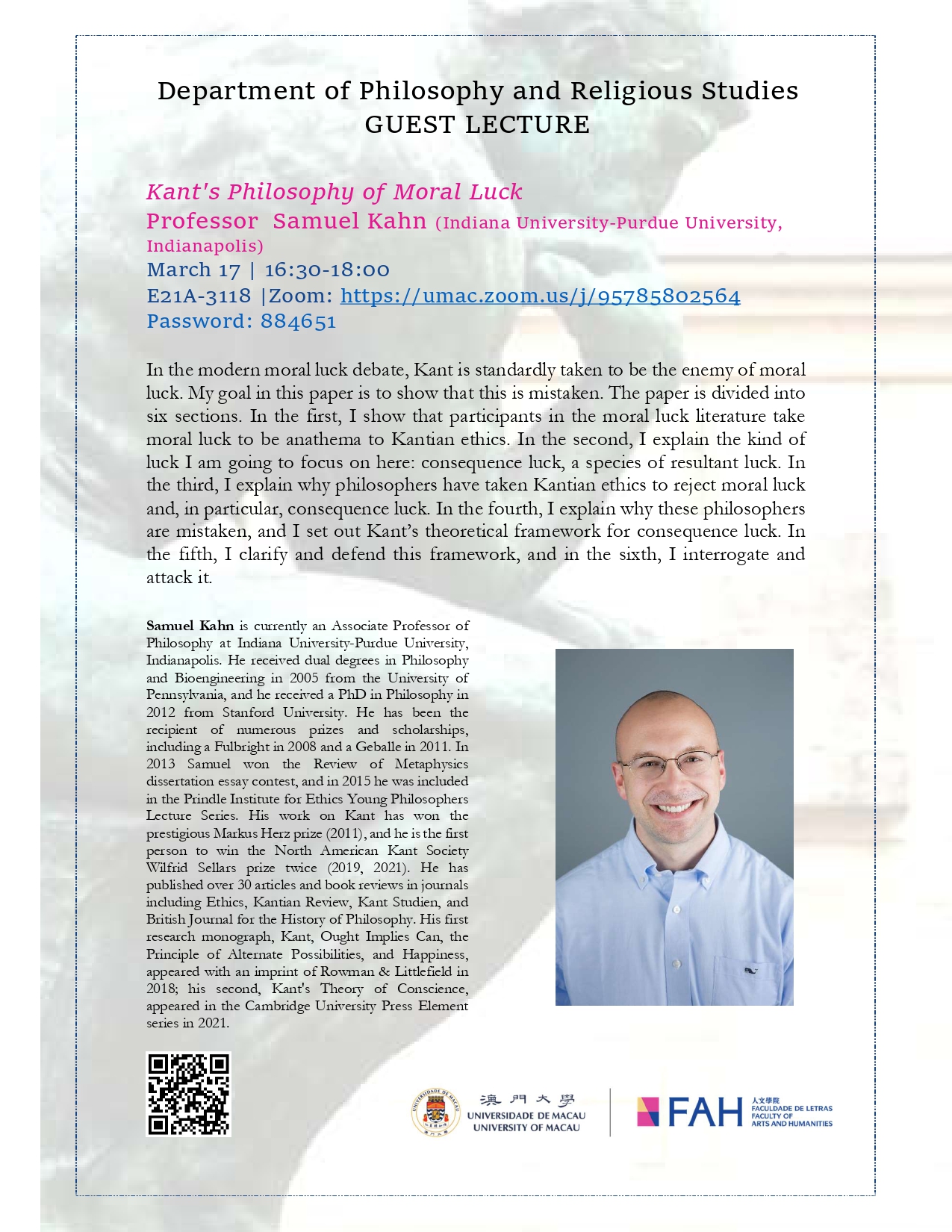

FAH/DPHIL Guest Lecture – “Kant’s Philosophy of Moral Luck” by Prof. Samuel Kahn, Indiana University-Purdue University, Indianapolis
2023-03-17 @ 4:30 pm ~ 6:00 pm
Zoom: https://umac.zoom.us/j/95785802564
Password: 884651
Abstract
In the modern moral luck debate, Kant is standardly taken to be the enemy of moral luck. My goal in this paper is to show that this is mistaken. The paper is divided into six sections. In the first, I show that participants in the moral luck literature take moral luck to be anathema to Kantian ethics. In the second, I explain the kind of luck I am going to focus on here: consequence luck, a species of resultant luck. In the third, I explain why philosophers have taken Kantian ethics to reject moral luck and, in particular, consequence luck. In the fourth, I explain why these philosophers are mistaken, and I set out Kant’s theoretical framework for consequence luck. In the fifth, I clarify and defend this framework, and in the sixth, I interrogate and attack it.
Bio
Samuel Kahn is currently an Associate Professor of Philosophy at Indiana University-Purdue University, Indianapolis. He received dual degrees in Philosophy and Bioengineering in 2005 from the University of Pennsylvania, and he received a PhD in Philosophy in 2012 from Stanford University. He has been the recipient of numerous prizes and scholarships, including a Fulbright in 2008 and a Geballe in 2011. In 2013 Samuel won the Review of Metaphysics dissertation essay contest, and in 2015 he was included in the Prindle Institute for Ethics Young Philosophers Lecture Series. His work on Kant has won the prestigious Markus Herz prize (2011), and he is the first person to win the North American Kant Society Wilfrid Sellars prize twice (2019, 2021). He has published over 30 articles and book reviews in journals including Ethics, Kantian Review, Kant Studien, and British Journal for the History of Philosophy. His first research monograph, Kant, Ought Implies Can, the Principle of Alternate Possibilities, and Happiness, appeared with an imprint of Rowman & Littlefield in 2018; his second, Kant’s Theory of Conscience, appeared in the Cambridge University Press Element series in 2021.

